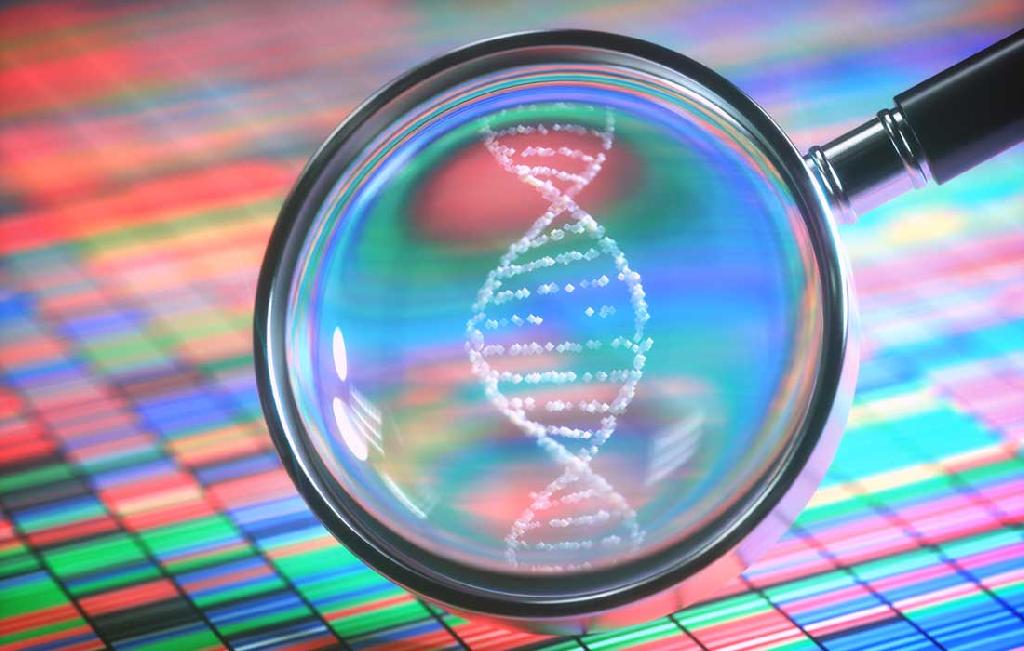The Brain and the Body: How Mental Health and Physical Health Are Connected
In order to fully understand how to best treat mental illness, we must first understand the factors that can cause mental illness, specifically the balance between nature and nurture. It’s important to remember that psychiatric conditions are medical problems that deserve the same kind of attention, research, and treatment as any physical ailment.
What Causes Mental Illness?
Like many other medical problems, such as diabetes, high blood pressure, and heart disease, the development of mental illnesses can be understood using the stress-diathesis model. In science, medicine, and psychiatry, diathesis refers to a genetic predisposition based on the genetic information passed on to individuals by their parents. Research indicates that mental illnesses such as bipolar disorders, schizophrenia, major depressive disorder, obsessive-compulsive disorder, alcohol dependence, some other personality disorders, and even completed suicides, are all influenced by genetics.

Like many physical health problems, genetics also plays a role in mental health.
The highest degree of mental illness heritability occurs with bipolar disorder, where 80% of people who are diagnosed with bipolar disorder are born with specific genetic mutations associated with that illness. Conversely, roughly 20% of people who display symptoms of bipolar disorder at some time during their lives are not born with the genetic mutation. Unlike some medical conditions that have a 100% heritability rate, such as Huntington’s disease, there is no mental illness that can be predicted to always occur based on genetics.
With the knowledge of the role of genetics, we can then begin to understand how other factors, or stressors, can cause the development of mental illness. The environmental stressors that contribute to mental illness include:
- Early childhood adverse events such as abuse or neglect
- Substance misuse (especially early use of substances)
- Major loss or significant life transitions
- Bullying or experiences of other traumas
Interestingly, more and more research is being compiled on the bridge between genetic and environmental factors that can influence the development of mental illness. Specifically, researchers are looking at epigenes, which are DNA base pairs located outside, or upstream, of genes located in chromosomes. The incredible thing about epigenes is that they change from day-to-day based on what is happening in the environment. One day, an epigene may be an inhibitor, closing off other downstream genes that could contribute to various conditions. However, if something in the environment changes that epigene through a process called methylation, that epigene could “flip” to become a promoter of downstream genes. This process starts a cascading effect that can cause cells to grow, change, or even die, changing the neuroanatomy of the brain and its receptors and neurotransmitters. Ultimately, these changes can cause shifts in an individual’s feelings, thinking, and behavior.
Knowing that controlling our environment can be difficult, scientists are optimistic that we might someday influence these epigenetic changes.
Why Mental Illnesses Are Medical Problems
Only about 20 years ago, researchers began to look into the inter-connectedness of physical conditions and mental illnesses. Researchers discovered that people with major depressive disorder also have a decreased heart rate variability, meaning it takes longer for a person to change their heart rate higher or lower while exercising or at rest. Researchers also found that some individuals with major depressive disorder have an abnormal concentration of inflammatory mediators. Individuals with untreated depression also have a redistribution of fat cells, with cells moving from appendages to central areas of the body, specifically the gut. As we know, obesity leads to many other medical problems.
On the flip side, people with certain medical illnesses tend to have much higher rates of depression. For example, for nearly 90% of individuals who are diagnosed with pancreatic cancer—the deadly carcinoma that has taken the lives of notable figures like Alex Trebek, Patrick Swayze, Steve Jobs, and Ruth Bader Ginsburg to name a few—major depression is among their first reported symptoms.
Additionally, researchers have also begun to study and understand the relationship between macrophage activity and immune system issues. Macrophages are an important part of the immune system that fire off inflammatory mediators when a virus, bacteria or other harmful foreign bodies enter the bloodstream. When these inflammatory mediators make their way to the central nervous system and the brain, they can cause symptoms such as fatigue, loss of appetite, anhedonia, and poor or altered sleep. These symptoms also fit the diagnostic criteria for major depressive disorder. Newer research suggests that when someone with depression has uncontrolled inflammatory mediators in their system, it is tougher to treat the depression and help that individual recover.
Compounding the issue, macrophages are found in fat cells. The higher the concentration of adipose tissue, the more inflammation one may have in the body. Other sources of chronic inflammation, like cardiovascular disease or rheumatoid arthritis, also have similar connections to developing a mental illness like depression. Scientists are even beginning to study the effects of anti-inflammatory medicines to combat treatment-resistant depression and other mental illnesses.
How to Reduce Inflammation and Mitigate Mental Illness
So if global, uncontrolled inflammation is a contributor to mental illness, then what are some things that people can do to get this inflammation under control and potentially avoid the development of a mental illness? According to the American Psychiatric Association, there are 10 inflammatory triggers for mental illness:
- Sedentary Lifestyle
- Obesity
- Smoking
- Lack of resilience
- Other sources of inflammation (like gingivitis)
- Poor sleep
- Poor diet
- Changes in gut permeability
- Allergies
- Vitamin D deficiency
Luckily, there are ways to reduce these inflammatory triggers through behavioral and lifestyle changes that can help reduce the development of mental illness and help people already diagnosed with a mental illness find recovery. At Skyland Trail, we include many of the following aspects into our holistic treatment model.
- Movement and Regular Exercise: Specifically, individuals should exercise for at least 30 minutes four times per week. High-intensity interval training and strength training large muscle groups are the best choices.
- Weight Control: Current research tells us that more fat cells mean more macrophages which means more inflammation and a greater chance of developing mental illness. Additionally, carrying excess weight also makes it more difficult to exercise.
- Smoking Cessation: In addition to addictive chemicals like nicotine, smoking also introduces significant amounts of inflammatory chemicals into the body. These make it more difficult to treat mental illnesses, and the connection between smoking, vaping, and mental health is being studied more and more. Skyland Trail has specifically addressed this issue by becoming a nicotine-free campus and liberally offering smoking cessation interventions.
- Other Inflammation Sources: Things like gingivitis or psoriasis are just a few examples of physical conditions that can impact mental health. Remember to regularly seek preventive care for the entire body. A healthy body creates a healthy brain.
- Sleep: Sleep and brain health go hand-in-hand. Restorative sleep is especially important for learning and may play a significant role in the regulation of some mental illnesses.
- Healthy Diet: One of the best diets for reducing inflammation is the Mediterranean diet that focuses on omega-3 fatty acids, fresh vegetables, and healthy carbohydrates. Avoid simple carbohydrates, processed foods, and high amounts of sugar. Instead, use food as fuel for an active lifestyle, not necessarily as a reward.
- Vitamin D Levels: A comprehensive history and physical by a physician often uncovers a vitamin D deficiency. We’re not talking about the kind of vitamin D you get from the sun while at the beach. We’re talking about a nutritional vitamin D called 25-hydroxyvitamin D. While not recommended for extended periods of time, your physician may recommend vitamin D2 supplements for a period of time based on lab tests. Consult a physician before adding any kind of supplement or vitamin to your normal diet and exercise habits.
Mental illnesses really are medical problems and have clear links to the physical body, especially with inflammation. Understanding how nature (genetics) and nurture (the environment and behaviors) converge can go a long way in understanding how to better treat mental illnesses and improve overall health. Mental health is health, and healthy habits can positively impact mental health.

